Raise your hand if you’ve ever felt offended or outraged by something someone said or did. I’m guessing most hands are up!
Being offended is a universal human experience. We’ve all felt that hot flash of anger, that pit in our stomach when someone crosses a moral line or does something that feels unjust or hurtful.
While taking offense is a natural reaction, staying stuck in outrage mode can really damage our happiness and health. Dwelling on things that offend us keeps us trapped in negativity – which feels plain awful. Holding onto bitterness often hurts us more than the offending person or situation.
Luckily, we have the power to choose how much offense to take in response to any given situation. We can’t always control others’ insensitive behaviors, but we can control how we react. Rising above outrage is one of the most liberating things we can do for ourselves. Letting go of judgment and negativity frees us up for greater understanding, positivity, and grace.
This article explores how to develop the mindset and skills to let go of offense. By focusing on what we can control, we can take back our power and regain our peace of mind.
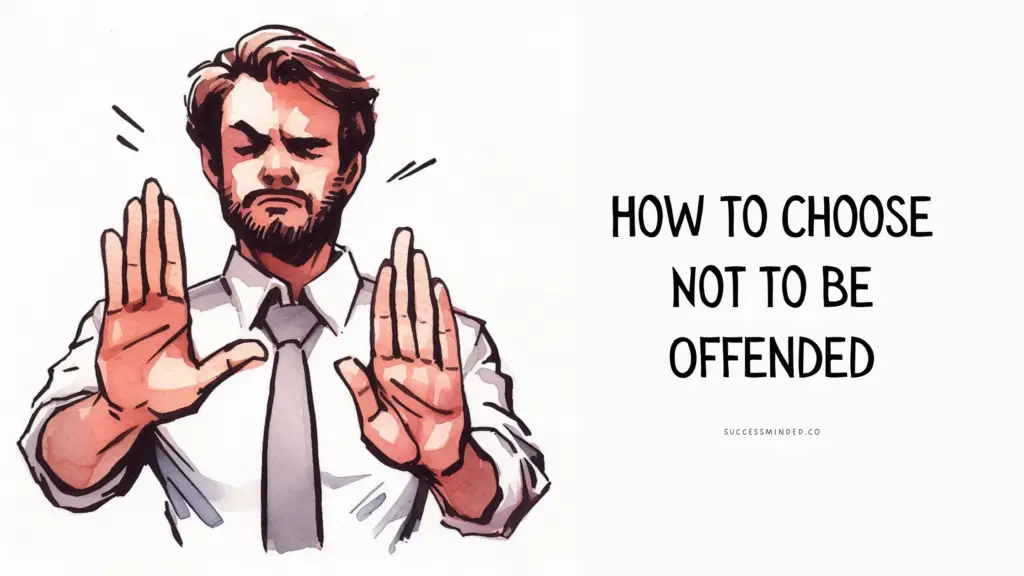
Why Do We Take Offense?
So, what causes us to take offense in the first place?
The root of outrage stems from feeling threatened or attacked. When we perceive that someone has crossed a moral line or invalidated an important value, our brain’s threat response kicks in. We go into self-defense mode to push back against the offense.
Outrage also often comes from unmet expectations. When people don’t behave how we think they should, it offends our sense of justice. For instance, if someone cuts in line at the grocery store, they’re violating social norms of polite behavior. We take offense at this insensitivity to others.
Oftentimes, the intensity of our outrage reflects inner insecurities. Feeling offended is essentially feeling that our worth, dignity, or importance is being diminished. The more self-doubt or low self-esteem we harbor, the more sensitive we’ll be to perceived slights or dismissals.
Past emotional wounds also prime us to take offense. Old hurts make us vigilant for situations that feel similar so we can avoid being burned again.
The bottom line is, outrage is usually more about our own fears and sensitivities than the offending person or situation. This offers hope – because we can change ourselves more easily than we can change others!
How Taking Offense Hurts Us
Constantly feeling offended keeps us trapped in outrage, bitterness, resentment, and other awful-feeling emotions. Living in this state of negativity clouds our whole perspective on life. Everything gets viewed through a lens of anger, darkness, and gloom.
Choosing to be offended also turns people against each other. Outrage stirs up divisions instead of cultivating understanding. It strains relationships and destroys any chance of engaging in thoughtful dialogue.
Dwelling in offense is totally exhausting! It drains our energy that could be used for positive goals, fun activities, and enjoying life. Feeling victimized and outraged makes life feel like an uphill battle.
Most tragically, choosing offense gives away our personal power. When we fixate on everything that’s wrong with a person or situation, we give it dominance over our emotional state and well-being. Essentially, we let the offender control how we feel.
Taking back our power starts with recognizing all the ways outrage harms us. If we see outrage as a form of self-inflicted suffering, we’ll become highly motivated to overcome it! The guiding light needs to be choosing responses that make our life feel good versus bad.
Ways to Choose Not to Be Offended
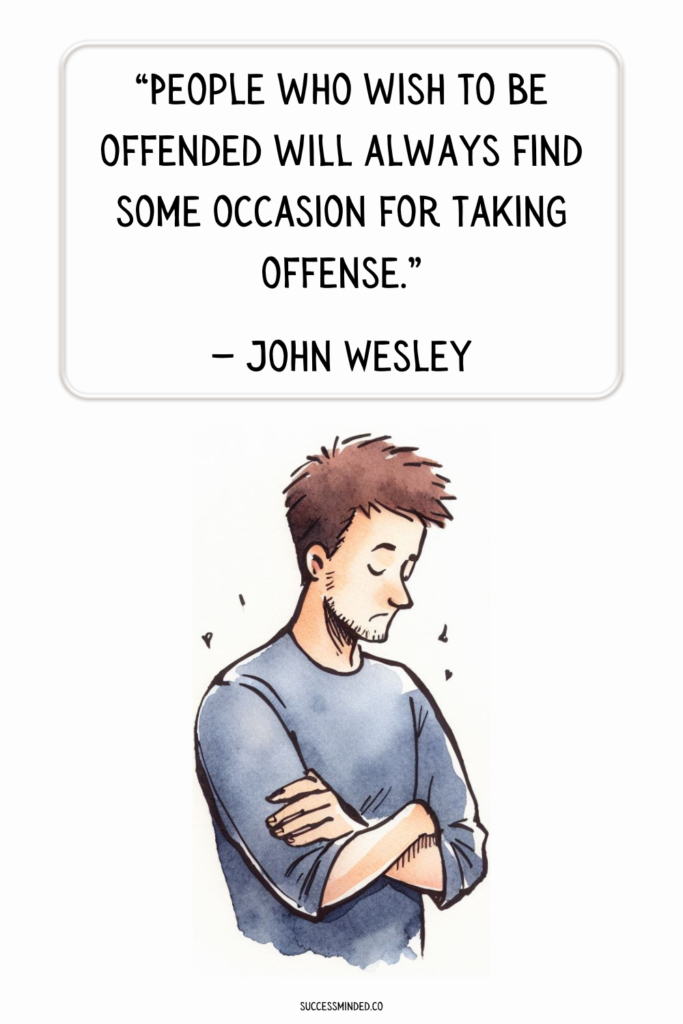
“People who wish to be offended will always find some occasion for taking offense.”
John Wesley
The first step in letting go of outrage is to pause and get curious. Instead of immediately judging, try asking questions first. What is the backstory behind why someone is acting this way? Might they be unaware of how their behavior impacts others? Is my offense truly about me, or about factors unrelated to who I am?
Getting context and understanding the larger human picture can often reveal that a perceived offense wasn’t actually personal. And even if it was intended to offend, we can still choose our reaction.
Along these lines, it’s helpful to consider intent versus impact. Sometimes, people inadvertently say or do insensitive things without meaning to. The impact still matters if someone felt hurt. Raising awareness can help prevent future harm. However, assuming positive intent prevents our response from escalating into full-blown outrage.
It’s also useful to separate the person from the behavior. You can speak out against hurtful behaviors while still recognizing the basic humanity of the offender. As the saying goes, “Hurt people hurt people.” With compassion, we can create space for growth and redemption.
Before taking offense, also ask yourself if the situation is really worth your emotional energy. Is it a repeated pattern of serious harm? Or is it an occasional insensitivity from someone who is generally kind? By picking our battles, we preserve our energy for outrage where it truly matters.
One of the most freeing mindset shifts is to remember that you always choose your response. While we cannot control others’ behaviors, we have full control over how much offense to take from them. We can shrug off unskillful words, or let them fester into resentment. This power remains in our hands alone.
Another key skill is properly processing anger when offensive situations do arise. Don’t repress the anger because that turns it into bitterness. But don’t become consumed by it either. Acknowledge the anger, feel it fully, then use it proactively. Let it energize you to address injustices with calm, constructive assertions rather than hostile aggression.
Injecting humor into tense situations can also help defuse potential offense. Comedy and playfulness allow us to reveal new perspectives that were obscured by tension. Laughing together forms a connection, even if differences remain.
Strengthening our core sense of self-worth provides an unshakable foundation. If you know you are worthy no matter what, you won’t be as easily offended when your actions aren’t affirmed. Keeping our egos in check also prevents perceiving every insensitivity as a personal attack. Remembering that all humans have value, even when we make mistakes, cultivates forgiveness.
Conclusion
Rising above the magnetic pull of outrage is hugely liberating. It allows us to live with more generosity, empathy, and grace. When we aren’t weighed down by grudges and bitterness, we have so much more mental spaciousness and joy.
Without all our emotional energy tied up in resentment, we can focus on building common ground with others. We become free to create human connections, even when differences remain.
By taking back our power to choose our response, we reclaim our right to inner peace and contentment. We let go of feeling like a victim and regain trust in our resilience. The freedom to shrug off life’s insensitivities is one of the greatest gifts we can give ourselves.

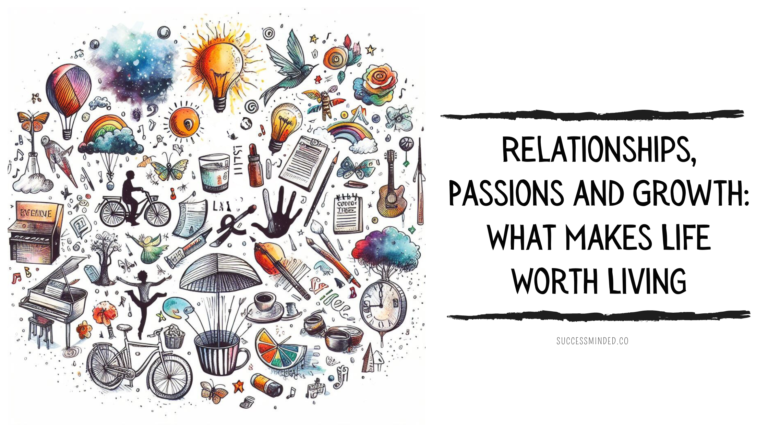
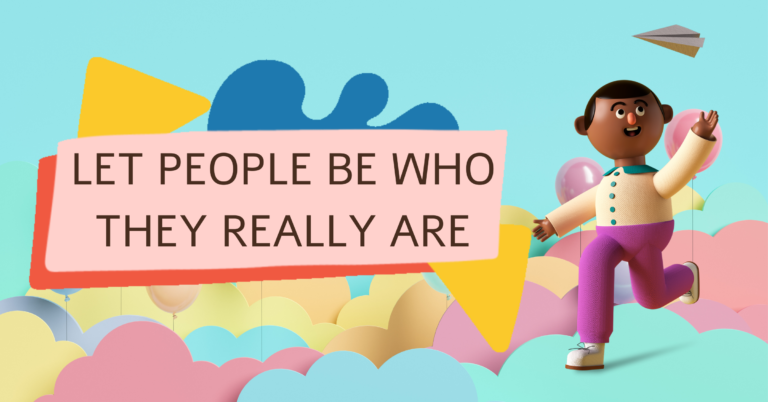
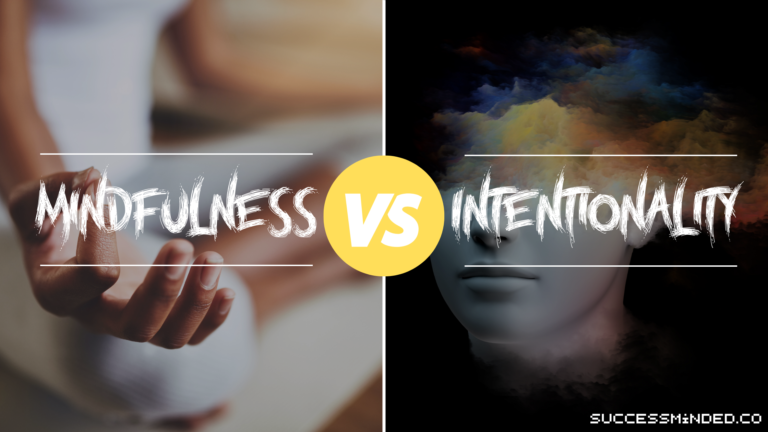
Pingback: Why (Or Why Not) Is Friendship a Two-Way Street? – Success Minded